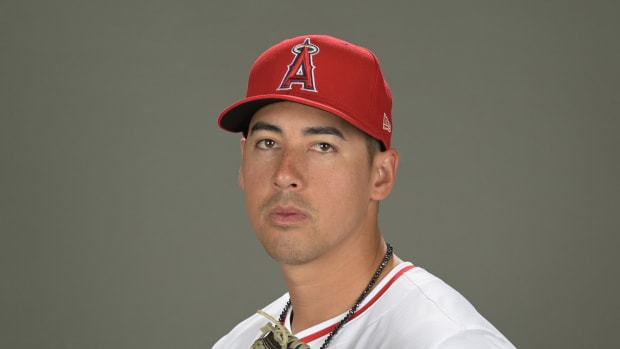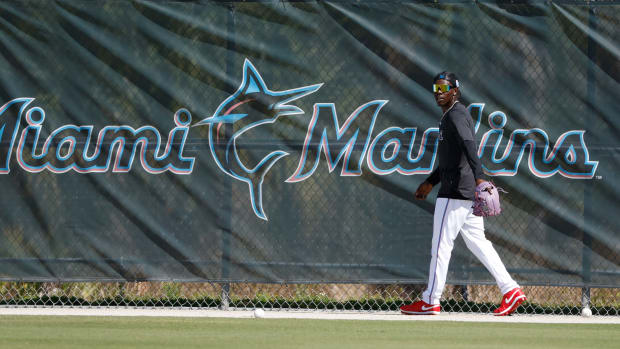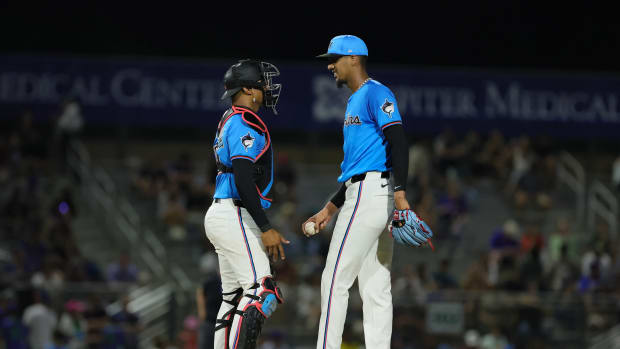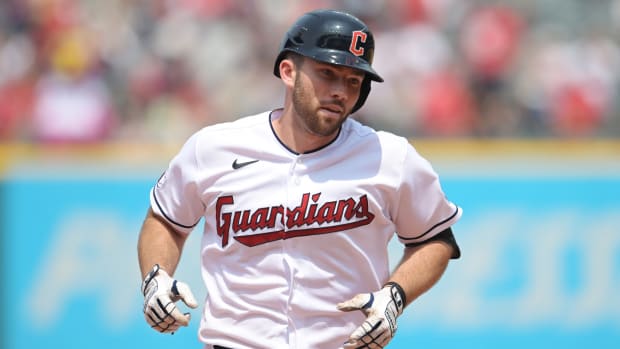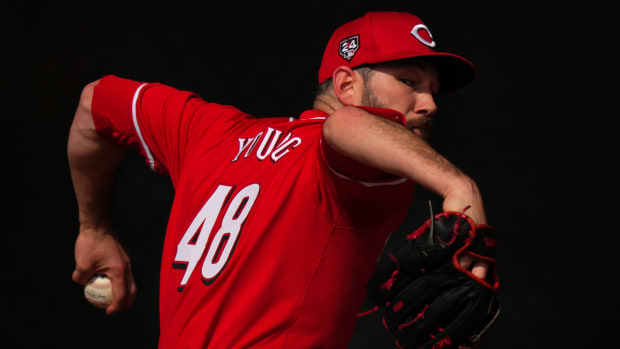Six Ways the Mets Could Have Handled Their Latest Fiasco Better
The Mets could have handled this better. “This” is the fiasco du jour—a beat reporter cursed out by the manager and physically challenged to fight by the fifth starter, plus the ensuing fallout—but, really, the sentence is accurate so often that you might as well keep it vague. “This” is Mickey Callaway’s “Don’t be a smarta--, motherf-----” in response to Newsday's Tim Healey saying “See you tomorrow,” and “this” is Jason Vargas’ “I’ll knock you the f--- out, bro”, and “this” is just about everything that followed, and “this” is… much of the franchise’s recent history of general existence. Just how could the team have better handled this one, though? Working backwards, let us count the ways...
1. Hold Only One Series Of Incident-Related Press Conferences
From Sunday’s post-game drama to Monday’s pre-game response, the team had nearly a full day to prepare its approach; this, presumably, should have been enough time to get it right, or, at least, not so egregiously wrong as to require an instant do-over. It was not.
GM Brodie Van Wagenen addressed the media first, announcing that Callaway and Vargas had each been fined $10,000. Then, however, it was Callaway’s turn. He said he could have better controlled his reaction. He said he wasn’t interested in sharing his side of events (“I don’t need to tell my side. That doesn’t help me in any way. It was a misunderstanding, obviously”). He said he was just passionate about the game. But, notably, he did not apologize, even when asked directly about whether he had an apology.
Meaning that Callaway, just an hour later, was in the position of calling reporters back into his office for a re-do, beginning with “I understand that I got some feedback” before explaining that he had, in fact, apologized. Better late than never? Sure! But made supremely weird by the fact that it was not originally acknowledged and required a separate standalone session, something very unusual in a structured pre-game routine? Oh, you betcha.
2. Do Not Allow Manager To Compare Himself To Billy Martin
This does not work in any context. Any. If Callaway compares himself to Martin, generally speaking, the easy comeback is: “You’re not Billy Martin. Billy Martin won two pennants!” And if Callaway compares himself to Martin, specifically regarding his temper, as he did on Monday (“Billy Martin punched a reporter one time. It’s just part of this game”), the easy comeback is: “You’re not Billy Martin. Billy Martin fought a marshmallow salesman in a bar in Minneapolis, got fired, got hired again, fought one of his own pitchers in a bar in Baltimore, and got fired again!”
3. Craft An Initial Response Meaningfully Different From The One Issued When The Mascot Flipped People Off
The Mets’ official statement when Mr. Met flipped the bird to a group of fans in 2017: “We apologize for the inappropriate action of this employee. We do not condone this type of behavior. We are dealing with this matter internally.”
The Mets’ official statement when all of this went down: “The Mets sincerely regret the incident that took place with one of our beat reporters following today’s game in the clubhouse. We do not condone this type of behavior from any employee. The organization has reached out and apologized to this reporter and will have further discussions internally with all involved parties.”
4. Just Don’t Do Any Of This
If possible. (Which, generally… it is.)
5. Try Not To Immediately Pivot To Something Nearly As Wild
Good: Roughly three hours after Callaway’s second press conference, a new story broke about the team, potentially siphoning away some of the attention here. Bad: The story was about Van Wagenen making managerial decisions at home while watching the game on television, an unprecedented level of control for a general manager and hardly a good harbinger for… anything.
Confirmations of the report soon surfaced, though Van Wagenen issued the classic non-denial denial. "No in-game decisions are ever called down to the dugout," Van Wagenen said, perThe Athletic's Tim Britton... which is conveniently phrased, as nowhere in the reports does it say BVW literally "called" in-game decisions down to the dugout.
How Metsian would it be if they actually used morse code to relay in-game decisions?
6. Do Not Operate In A Context Where This Is Normal
Maybe you want to drill this down a little further. Maybe you want to understand why a manager might be so put off by the phrase “see you tomorrow”—so keyed into the idea that he might not be there tomorrow, or, as one beat reporter guessed, perhaps even so ready to take a shot at ensuring that he wouldn’tbe there tomorrow—or why tempers might be running so high after a loss—a loss with baffling relief management, like so many of this team’s losses—or why this might not even have felt like the club’s most dramatic move this week—after all, it happened only three days after the pitching coach was fired in order to promote an 82-year-old and the bullpen coach was fired in order to promote the man who’d been demoted from the same position last year. But understanding any of this would require understanding the fundamental spirit of the Wilpons’ Mets, a franchise operating in a space so absurd that it is consistently out beyond the reach of either comedy or tragedy, a franchise whose mismanagement has made the team’s name into a verb and an adjective and a hashtag, none of them remotely flattering. It would require understanding something which isn’t meant to be understood. It’s meant to be felt, though preferably only with the benefit of local anesthesia.
The Mets could have handled this better, sure. They just wouldn’t be the Mets if they did.






























